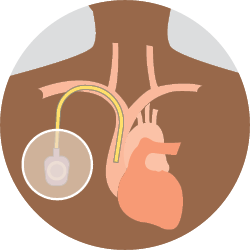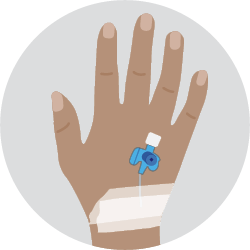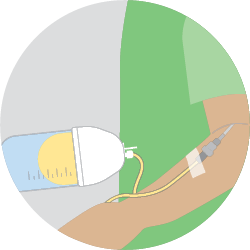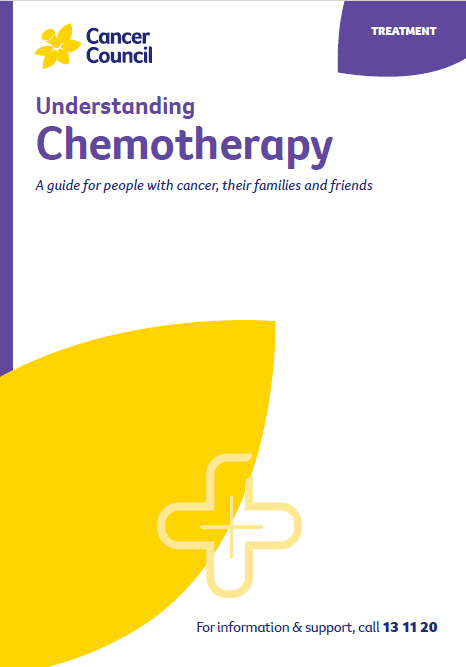- Home
- About Cancer
- Cancer treatment
- Chemotherapy
- Having chemotherapy
- Intravenous (IV) chemotherapy
- How IV chemotherapy is delivered
How IV chemotherapy is delivered
IV chemotherapy can be delivered in the following ways.
 |
Central venous access device (CVAD)This is a thin plastic tube that remains in your vein throughout the treatment course (for several weeks or months). It allows the treatment team to give chemotherapy, other drugs, fluid or blood transfusions, and draw blood. A CVAD is inserted under local anaesthetic and it shouldn’t cause discomfort or pain. Common types include:
|
 |
CannulaThis is a small plastic tube inserted into a vein in your arm or the back of your hand. Having a cannula put in can be uncomfortable, but it should only take a few minutes. The cannula can be kept in place if you need to stay in hospital for a few days. If you have day treatment every few weeks, the cannula is usually put in and taken out each time you visit. |
 |
Portable pumpThis is a device that gives a prescribed amount of chemotherapy continuously for up to a week. It is attached to a CVAD and does not need to be connected to a power point. Different types of pumps are used (pictured to left is an elastomeric infusion pump). The pumps are small and can be carried in a bag and tucked under a pillow when sleeping. |
Caring for your CVAD
A nurse will show you how to look after your CVAD to prevent infections or blockages. You may visit the clinic, or a nurse may visit you at home to help clean tubes or lines. Contact your health care team immediately if there is pain, redness or swelling around the line or port.
→ READ MORE: Other ways of having chemotherapy
My chemo infusions took about 8 hours because I had 2 drugs and a saline solution in between. It was a long day, sitting in the chair having infusions.
Cheryl
Podcast: Making Treatment Decisions
Listen to more episodes from our podcast for people affected by cancer
More resources
A/Prof Kate Mahon, Director of Medical Oncology, Chris O’Brien Lifehouse, NSW; Katherine Bell, Dietetics Department, Liverpool Hospital, NSW; Brigitta Leben, Dietetics Department, Liverpool Hospital, NSW; Sophie Michele, 13 11 20 Consultant, Cancer Council SA; Dr Jess Smith, Medical Oncologist, Macquarie University Hospital, NSW; Karene Stewart, Consumer; Julie Teraci, Clinical Nurse Consultant, Skin Cancer and Melanoma, Cancer Network WA.
View the Cancer Council NSW editorial policy.
View all publications or call 13 11 20 for free printed copies.

